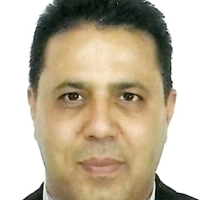Design of the portfolio Based on Problem-Based Learning for the geriatric health master's internship Program and its Evaluation Considering Student Satisfaction Levels
Students often express confusion and dissatisfaction with the current internship structure for their master's degree in geriatric health. They feel the lack of clear evaluation criteria and a portfolio system to track their progress. Additionally, the field is relatively new, and traditional teaching methods may not be optimal. This study aimed to design and implement a portfolio based on problem-based learning (PBL) for the geriatric health master's internship program. We also evaluated student satisfaction with this approach.
This semi-experimental quantitative study was conducted in 2024. The stages of conducting the research included designing, implementing, and evaluating the level of satisfaction of students from the portfolio and comparing it with the traditional method. In this way, after designing and compiling the portfolio in problem-based learning, during the implementation phase of the internship program, all the students in the internship unit in the field of elderly health, who were ten people, were randomly divided into two groups: control (five people) and test (five people) were divided and during 12 weeks they passed the training course using the traditional method (control group) and the portfolio method (test group) It was implemented and the internship scores were announced for the students of each group. In the third step, to measure the level of satisfaction of students, the two mentioned methods of a two-part questionnaire including demographic information and questions related to the level of satisfaction of students were used. After collecting the research data, they were entered into SPSS-26 software, and independent t-tests and Fisher's exact test were used to compare the level of satisfaction of the two groups due to the normality of the data.
The average age (standard deviation) of the control and test groups was 35.4 (8.56) and 33.6 (8.08) years, respectively. There were no significant differences between the groups in terms of age, grade point average, gender distribution, or marital status. The mean (standard deviation) of overall satisfaction scores for the control and test groups was 26.8 (8.1) and 35.8 (2.28), respectively. The independent t-test revealed a statistically significant difference in overall satisfaction between the two groups (t=2.38, p ≤ 0.05).
This study suggests that geriatric health master's students find the PBL portfolio method more satisfying than the traditional internship approach. Students in the PBL group reported higher motivation and felt a stronger connection between theoretical knowledge and clinical practice. Therefore, incorporating the PBL portfolio method into geriatric health and other medical science internship programs is recommended. Notably, this is the first study to explore this method with geriatric health students. A limitation is the small sample size. Future research should involve a larger and more diverse student population across multiple universities.
-
COVID-19 Risk Perception and Its Relationship With Quality of Life and Mental Health Conditions in Older Diabetic Woman
, Abolfazl Hosseinnataj, Farzaneh Naseri, Hadi Najafi, , Mohammadreza Alizadeh, *
Health in Emergencies and Disasters Quarterly, Summer 2025 -
Systematic Review and Meta-analysis of the Effects of Elettaria Cardamomum Supplementation on Glycemic Indices and Anthropometric Measurements
Omid Nikpayam, Golbon Sohrab, Marziyeh Najafi, , Alireza Ostadrahimi*
Journal of Nutrition and Food Security, May 2025 -
Comparison of the Mental Health Status of Healthcare Employees Working at COVID vs. Non-COVID Units at Shariati Hospital during 2021 in Tehran, Iran
, Maryam Khosrozadeh, Ali Karimi-Rozveh*
Journal of Health Research in Community, -
Factors Affecting the Quality of Sexual Life in Iranian Elderly Men With Andropause
Mojtaba Mohammadi, Hamid Allahverdipour, Akram Ghanbari Moghaddam, *
Iranian Journal of Ageing, -
Psychometric Properties of the Persian Version of the Social Disconnectedness and Perceived Isolation Scales in Iranian Older Adults
Akbar Azizi Zeinalhajlou, Abdol Rasoul Safaeian, Haidar Nadrian, Mina Hashemiparast, Mohammad Bagher Alizaddeh Aghdam, Hosein Matlabi*
Iranian Journal of Ageing, -
Investigation of Health-promoting Lifestyle and Psychological Status of Older Adults Living in Tabriz in 2021
Vahid Mirzaei Majarshin, Tahereh Ramezani, Farzaneh Saadat Talab, , Sepideh Harzand Jadidi, *
Journal of Health Research in Community, -
Oral Problems and Psychological Status of Older Adults Referred to Hospital and Its Relationship With Cognition Status, Stress, Anxiety, and Depression
, Seyed Vahid Hosseini, Farzaneh Bahadori, , AmirMohamad Moghadasi, Reza Fadayevatan*
Iranian Journal of Health Sciences, Autumn 2022





